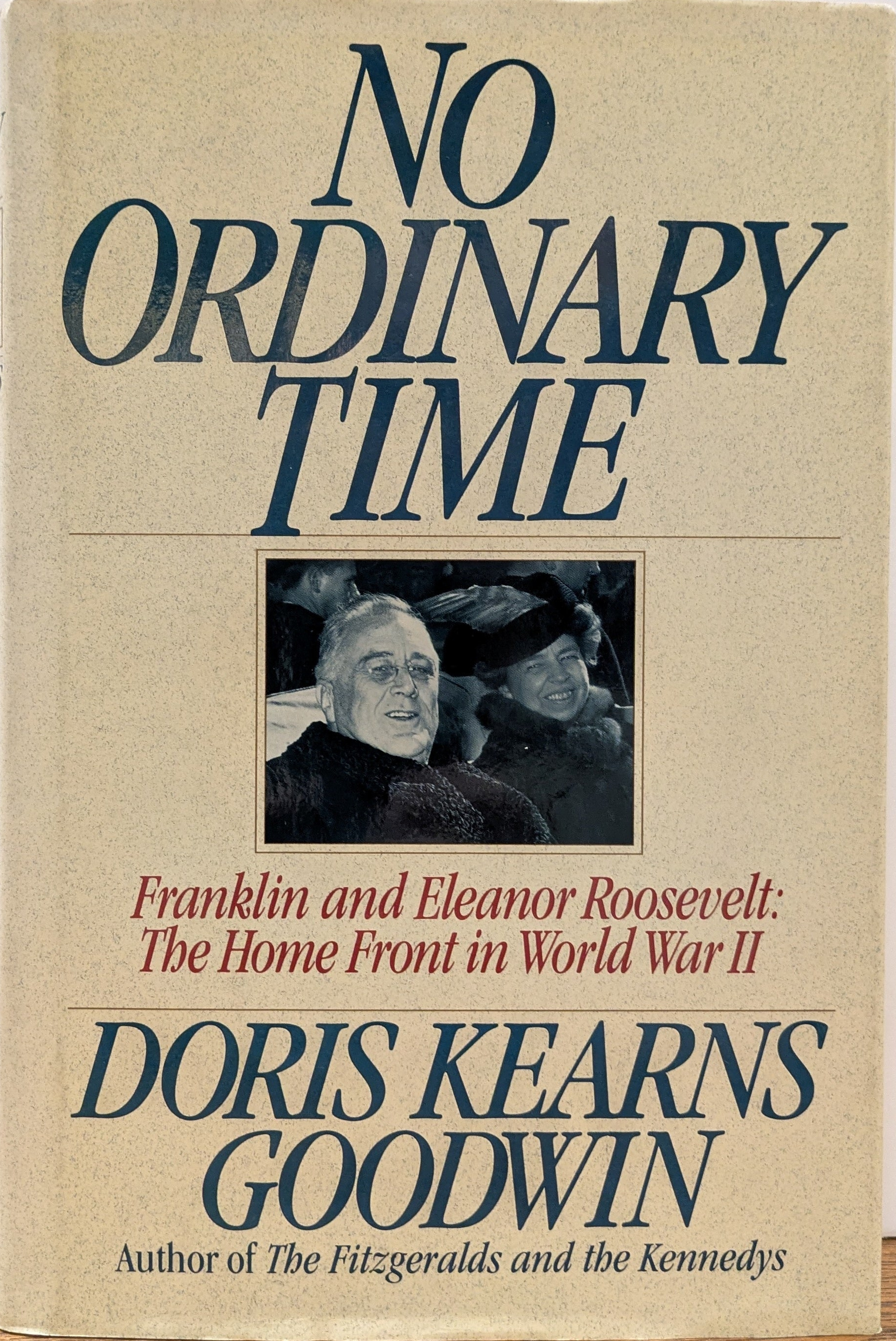Hardcover, 759 pages
English language
Published 1994 by Simon & Schuster.
Franklin and Eleanor Roosevelt: The Home Front in World War II

Hardcover, 759 pages
English language
Published 1994 by Simon & Schuster.
Presenting an aspect of American history that has never been fully told, Doris Kearns Goodwin writes a brilliant narrative account of how the United States of 1940, an isolationist country divided along class lines, still suffering the ravages of a decade-long depression and woefully unprepared for war, was unified by a common threat and by the extraordinary leadership of Franklin Roosevelt to become, only five years later, the preeminent economic and military power in the world.
At the center of the country's transformation was the complex partnership of Franklin and Eleanor Roosevelt. Franklin's main objective from the war's noset was victory, and he knew the war could not be won without focusing the energies of the American people and expanding his base of support -- making his peace with conservative leaders and gaining the cooperation of big business. Eleanor, meanwhile, felt the war would not be worth winning if the …
Presenting an aspect of American history that has never been fully told, Doris Kearns Goodwin writes a brilliant narrative account of how the United States of 1940, an isolationist country divided along class lines, still suffering the ravages of a decade-long depression and woefully unprepared for war, was unified by a common threat and by the extraordinary leadership of Franklin Roosevelt to become, only five years later, the preeminent economic and military power in the world.
At the center of the country's transformation was the complex partnership of Franklin and Eleanor Roosevelt. Franklin's main objective from the war's noset was victory, and he knew the war could not be won without focusing the energies of the American people and expanding his base of support -- making his peace with conservative leaders and gaining the cooperation of big business. Eleanor, meanwhile, felt the war would not be worth winning if the old order of things at home prevailed and was often at odds with her husband in her efforts to preserve the gains of the New Deal and achieve reforms in civil rights, housing, and welfare programs. While Franklin manned the war room at the White House and held meetings with Winston Churchill, Joseph Stalin, Mackenzie King, and other world leaders to discuss strategy for the war abroad, Eleanor crisscrossed the country, visiting the American people, seeing how the war and policies her husband made in Washington affected them as individuals.